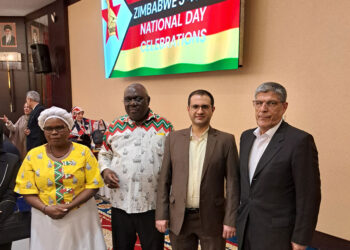تلفريك كنج نامه

یقع تلفريك كنج نامه في نهاية وادي عباس آباد الأخضر، على بعد 5 كيلومترات من مدينة همدان، بجانب النقوش التاريخية وشلال كنج نامه الجميل. يبلغ طول خط التلفريك هذا 1680 مترًا وفرق ارتفاعه 800 متر. یمتد هذا التلفريك إلى منطقة ميدان ميشان؛ إحدى المرتفعات الخضراء لجبل ألوند.
یسبب المناخ الجبلي ووادي ألوند الجميل والمناظر الطبيعية الفريدة لسهل میشان في قيام العديد من السياح من مختلف أنحاء البلاد وحتى العالم بزيارة هذه المنطقة. يوفر هذا المجمع الضخم كافة المرافق للسائح من ترفيه ورياضة وسكن وتعليم.
معرض الصور







